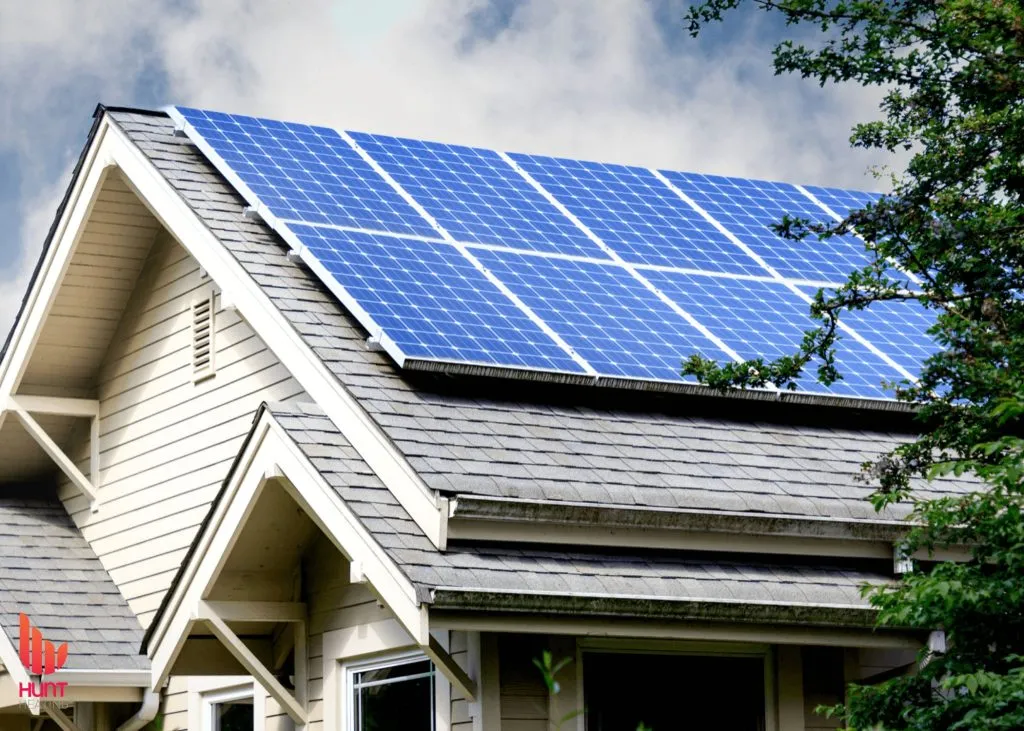Living off the grid has become increasingly popular among homeowners seeking independence, sustainability, and a closer connection to nature. However, heating and cooling off-grid homes can be a challenge, especially when balancing energy efficiency and environmental impact, notes Sun-Pro Realty Property Management. Traditional systems often rely on fossil fuels, which are not ideal for off-grid living. Heat pumps, including air source and electric heat pumps, offer an eco-friendly solution perfectly suited for these unique needs.
This article explores how heat pumps provide efficient and sustainable heating for off-grid homes, along with other green heating alternatives and tips for creating a self-sufficient home.
Challenges of Heating Off-Grid Homes
Off-grid homes operate independently of municipal power systems, requiring homeowners to generate their own energy, typically through solar panels, wind turbines, or other renewable sources. This independence comes with challenges, particularly when it comes to heating.
Common Challenges:
- Energy Limitations: Off-grid systems often have limited energy capacity, making efficient heating essential.
- Fuel Availability: Traditional heating methods that rely on propane, oil, or wood can be inconvenient and environmentally taxing.
- Environmental Impact: Fossil fuel-based systems contribute to greenhouse gas emissions, counteracting the sustainability goals of off-grid living.
Heat Pumps: A Sustainable Heating Solution
Heat pumps are an ideal choice for off-grid homes due to their energy efficiency and ability to integrate seamlessly with renewable energy systems. By transferring heat rather than generating it, heat pumps use significantly less electricity, making them a practical solution for energy-conscious homeowners.
Advantages of Heat Pumps for Off-Grid Homes:
- Energy Efficiency: Electric heat pumps deliver up to three times more energy than they consume, maximizing every unit of electricity generated by your renewable energy system.
- Renewable Compatibility: Heat pumps pair perfectly with solar panels and wind turbines, allowing off-grid homeowners to use clean, renewable energy for heating and cooling.
- Dual Functionality: A single heat pump provides both heating in the winter and cooling in the summer, eliminating the need for separate systems.
- Minimal Maintenance: Heat pumps require less upkeep than wood stoves or fuel-based systems, saving time and effort for homeowners.
Types of Heat Pumps for Off-Grid Living
Choosing the right heat pump depends on the climate, energy resources, and layout of your off-grid home. Here are the most common options:
1. Air Source Heat Pumps
Air source heat pumps are the most popular choice for off-grid homes. They extract heat from the outdoor air and bring it indoors during winter, and reverse the process in summer to provide cooling.
- Best For: Moderate climates with mild to cold winters.
- Features: Modern air source heat pumps can operate efficiently in temperatures as low as -25°C, making them suitable for many regions.
2. Ground Source Heat Pumps (Geothermal)
Ground source heat pumps draw heat from the earth, which maintains a consistent temperature year-round.
- Best For: Homes with sufficient land for underground loops and higher upfront budgets.
- Features: Geothermal systems are incredibly efficient and require minimal energy to operate.
3. Ductless Mini-Split Systems
Ductless systems are ideal for smaller homes or homes without existing ductwork. They allow for zoned heating and cooling, ensuring energy is only used where it’s needed.
- Best For: Compact or uniquely designed off-grid homes.
- Features: Sleek and easy to install, mini-split systems provide precise temperature control for individual spaces.
Other Eco-Friendly Heating Alternatives
While heat pumps are an excellent choice, off-grid homeowners may also consider these sustainable heating options:
1. Solar Heating
Solar thermal systems use the sun’s energy to heat water or air, which is then circulated throughout the home. This method works well in sunny climates and complements heat pump systems.
- Pros: Low operational costs and zero emissions.
- Cons: Limited effectiveness in areas with long winters or low sunlight.
2. Biomass Heating
Biomass stoves and boilers burn organic materials like wood, pellets, or agricultural waste to generate heat.
- Pros: Renewable fuel source and carbon-neutral when sustainably harvested.
- Cons: Requires regular maintenance and fuel storage space.
3. Radiant Floor Heating
Radiant systems circulate warm water or electric currents beneath the flooring to provide consistent, even heat.
- Pros: Highly efficient and compatible with heat pump water heaters.
- Cons: Higher installation costs and less effective for cooling.
Maximizing Efficiency with Heat Pumps in Off-Grid Homes
To make the most of your heat pump and reduce energy usage, consider the following strategies:
1. Optimize Insulation
Proper insulation is critical for off-grid homes. Insulated walls, roofs, and floors reduce heat loss in winter and keep interiors cool in summer, decreasing the workload on your heat pump.
2. Leverage Smart Technology
Smart thermostats and energy management systems can optimize heat pump performance by:
- Adjusting temperatures based on occupancy and weather conditions.
- Scheduling heating and cooling cycles during peak energy production hours.
3. Incorporate Battery Storage
Pair your renewable energy system with battery storage to ensure your heat pump can operate during cloudy or windless days.
4. Zone Your Heating
Use zoning to direct heat only where it’s needed. This is especially important for larger off-grid homes, as it reduces unnecessary energy use.
The Role of Foundry Heat Pumps in Off-Grid Heating
Foundry Heat Pumps specializes in advanced heating and cooling solutions tailored to the needs of sustainable and off-grid homes. Their expertise ensures you receive a system that integrates seamlessly with your renewable energy setup, maximizing efficiency and comfort.
Customized Recommendations
Foundry Heat Pumps evaluates the unique requirements of your off-grid home, including its size, layout, and energy resources. They recommend systems designed to perform reliably in even the most challenging environments.
Professional Installation
A properly installed heat pump is key to achieving maximum efficiency. Foundry Heat Pumps’ skilled technicians ensure seamless integration with your existing energy systems.
Financial and Environmental Benefits
Investing in a heat pump for your off-grid home offers both short- and long-term advantages:
1. Lower Energy Costs
By using renewable energy to power your heat pump, you eliminate the cost of fossil fuels and reduce reliance on purchased electricity.
2. Reduced Carbon Footprint
Heat pumps produce no direct emissions, supporting the sustainable goals of off-grid living.
3. Energy Independence
With a heat pump and renewable energy system, you can enjoy total energy independence, free from rising utility costs or supply disruptions.
Overcoming Common Concerns
“Will a heat pump work in extreme cold?”
Yes, modern air source heat pumps are designed for cold climates and maintain efficiency even in freezing temperatures.
“Are heat pumps expensive to install?”
While the upfront cost may be higher, the long-term savings and government incentives make heat pumps a cost-effective investment.
“Can heat pumps run entirely on renewable energy?”
Absolutely. Heat pumps are highly compatible with solar panels, wind turbines, and battery storage, making them perfect for off-grid setups.
Conclusion
Heating an off-grid home doesn’t have to be a challenge. Heat pumps provide an eco-friendly, efficient, and versatile solution that aligns perfectly with sustainable living goals. By pairing them with renewable energy sources and optimizing home design, homeowners can create a comfortable and energy-independent lifestyle.
With Foundry Heat Pumps’ expertise, you can find the perfect system tailored to your off-grid home’s needs. Embrace the power of heat pump technology and take the next step toward a sustainable, self-sufficient future.



